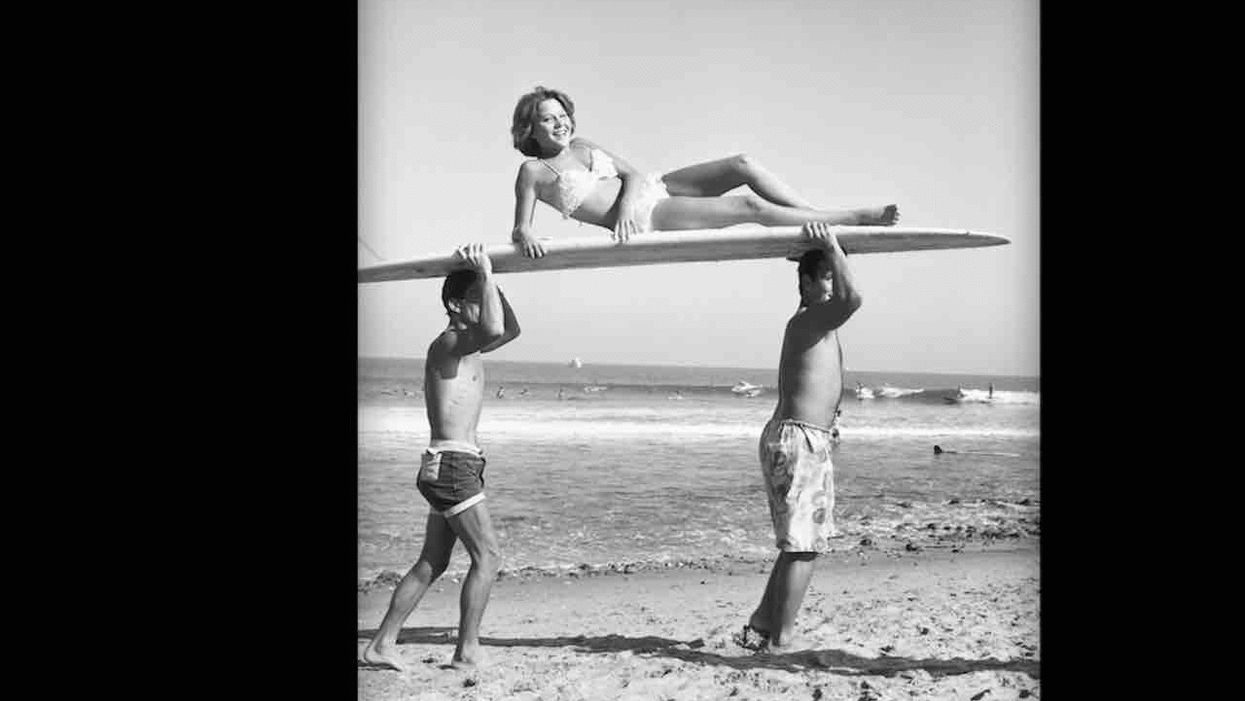
Photo by Michael Ochs Archives/Getty Images

'It's a shame that it's a privilege that's often reserved for straight white folks'
Even though three Hawaiian princes introduced surfing to North America in the late 1800s, SF Weekly reported that the sport in California is steeped in racism that's kept people of color out of the water and off the waves.
Dionne Ybarra told the outlet that even though she grew up just 20 minutes from Monterey peninsula beaches, her Mexican-American family only would get into the ocean about once annually — on the Fourth of July.
"There's this fear set up from birth that we're not ocean people, we don't go in the ocean," she added to SF Weekly, referring to people of color in the United States.
It wasn't until Ybarra was in her 20s that she started surfing, and now she runs an organization campaigning to get more girls of color in the water, the outlet said.
More from SF Weekly:
She started The Wahine Surf Project in 2010 in Monterey. Through working with parents at surf lessons, Ybarra has come to realize that the fear of water her mother exhibited — and a culture of not going to the beach — is common in communities of color.
America's history of systemic racism plays a major role in discouraging people of color from taking up water sports, according to Chelsea Woody, co-founder of Textured Waves, a surf collective for women of color.
"Segregation laws of this country really restricted who could participate in leisure activities and zoning laws with who could buy land in certain areas and coastal towns," Woody explains.
And then the outlet said there's the infamous "territorial aggression" within surfing culture that — while not necessarily connected to skin color — goes a long way toward underscoring issues of "privilege and access."
"Localism helps ensure that the people who are already there kind of stay in control," Mira Manickam-Shirley, co-founder of Oakland-based Brown Girl Surf, told SF Weekly. The outlet added that it's harder for people of color to rise above it all given that people already in wealthier, beachfront communities are more likely to be white.
Kyla Langen, co-founder of San Francisco-based Queer Surf, noted to SF Weekly that sexism and homophobia also are issues in surfing communities given their hyper-masculine energy and obsession with dominating the waves.
More from SF Weekly:
Gay women felt pressure to hide their sexuality to stay more marketable for surf companies. Romantic partners were, in public, platonic travel buddies. The same went for gender expression. "If we wanted to get paid or if we wanted to get sponsored, we had to be as femme as we could be," she says.
There was significantly less of this pressure when Langen moved to the Bay Area. She made more queer friends, and many said they had always wanted to surf but felt too intimidated to try. What started out as taking them surfing turned into formal lessons and retreats for queer, gender non-conforming, trans, and non-binary people. Langen officially founded Queer Surf in 2016. Showing up in groups, she says, has been helpful in queer folks feeling more safe and comfortable.
"It's just such a privilege to be able to go to the ocean and be at the ocean," Langen added to the outlet, "and it's a shame that it's a privilege that's often reserved for straight white folks."